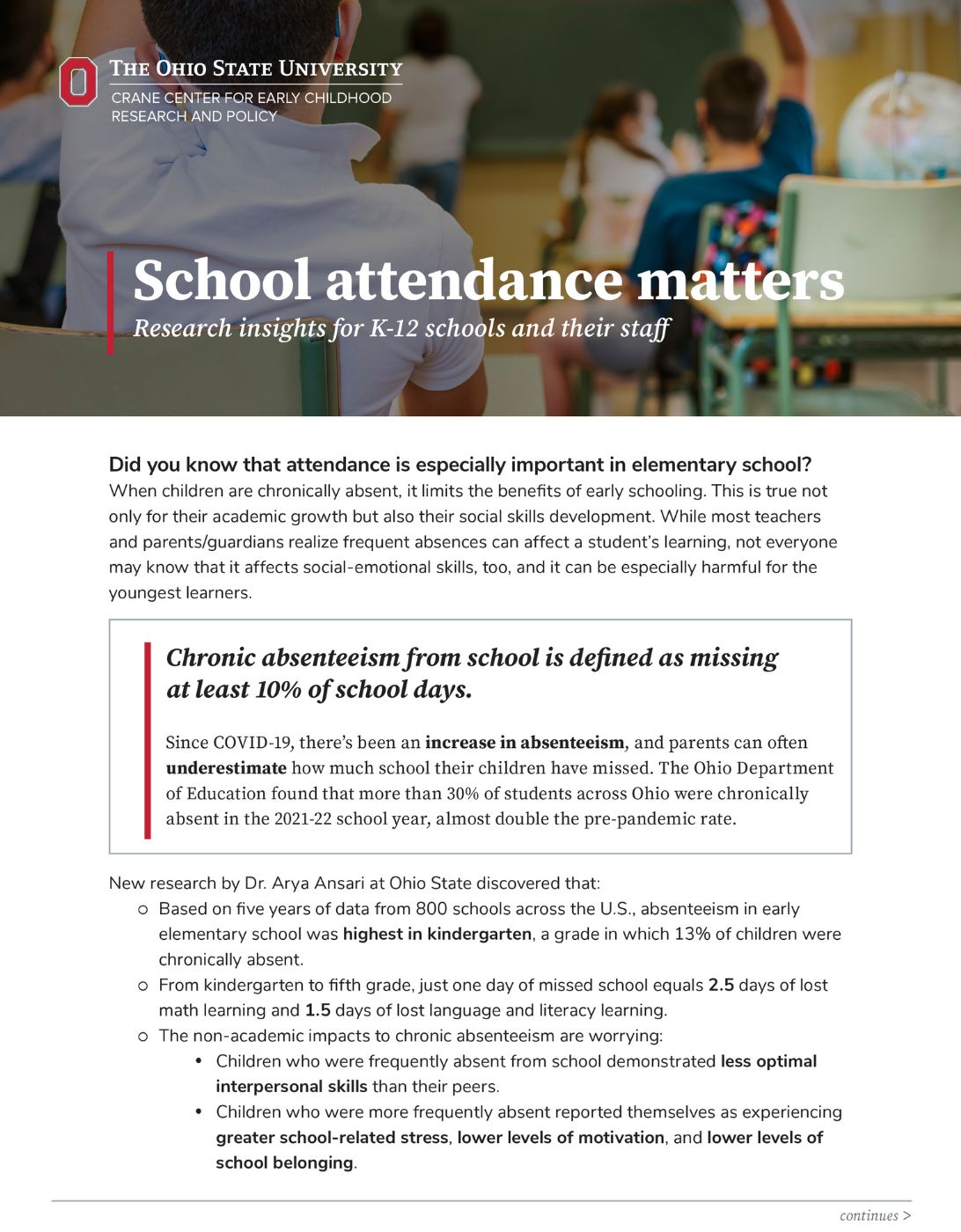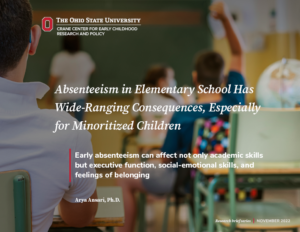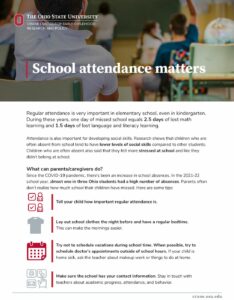Did you know that attendance is especially important in elementary school?
When children are chronically absent it limits the benefits of early schooling. This is true not only for their academic growth but also their social skills development. While most teachers and parents/guardians realize frequent absences can affect a student’s learning, not everyone may know that it affects social-emotional skills, too and it can be especially harmful for the youngest learners.
Chronic absenteeism from school is defined as missing at least 10% of school days.
Since COVID_19, there’s been an increase in absenteeism, and parents can often underestimate how much school their children have missed. The Ohio Department of Education found that more than 30% of students across Ohio were chronically absent in the 2021-22 school year, almost double the pre-pandemic rate.
New research by Dr. Arya Ansari at Ohio State discovered that:
- Based on five years of data from 800 schools across the U.S., absenteeism in early elementary school was highest in kindergarten, a grade in which 13% of children were chronically absent.
- From kindergarten to fifth grade, just one day of missed school equals 2.5 days of lost math learning and 1.5 days of lost language and literacy learning.
- The non-academic impacts to chronic absenteeism are worrying:
- Children who were frequently absent from school demonstrated less optimal interpersonal skills than their peers.
- Children who were more frequently absent reported themselves as experiencing greater school-related stress, lower levels of motivation, and lower levels of school belonging.
What can be done to prioritize attendance in the early elementary years?

Speak to families about the importance of early attendance, even during the earliest grades.

Frame this messaging not just about academics but also about social skills development.

Build strong engagement and communication with families.

Provide detailed information about how often children have been absent from school and intervene as early as possible before attendance problems grow. Providing families with information about children’s absences promotes better attendance.

Identify transportation problems or other barriers facing families and engage other school or district staff to help solve them.

Create a positive, supportive school climate – especially for children from socially vulnerable groups.





